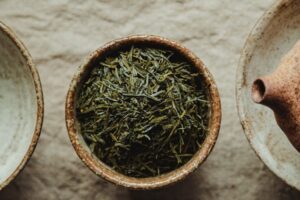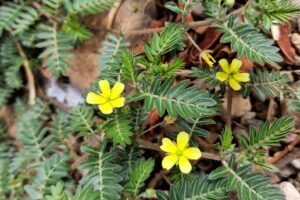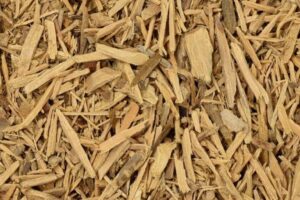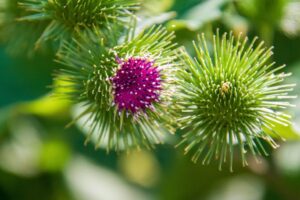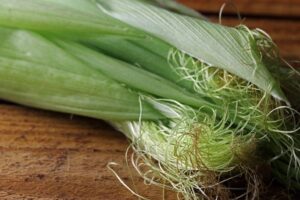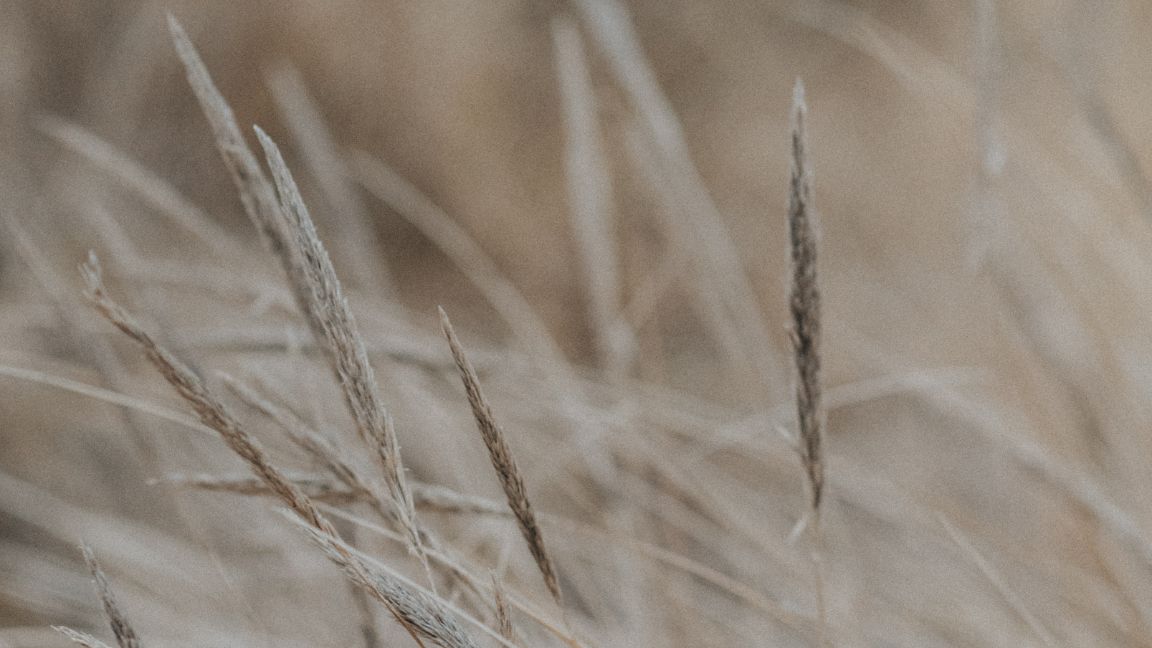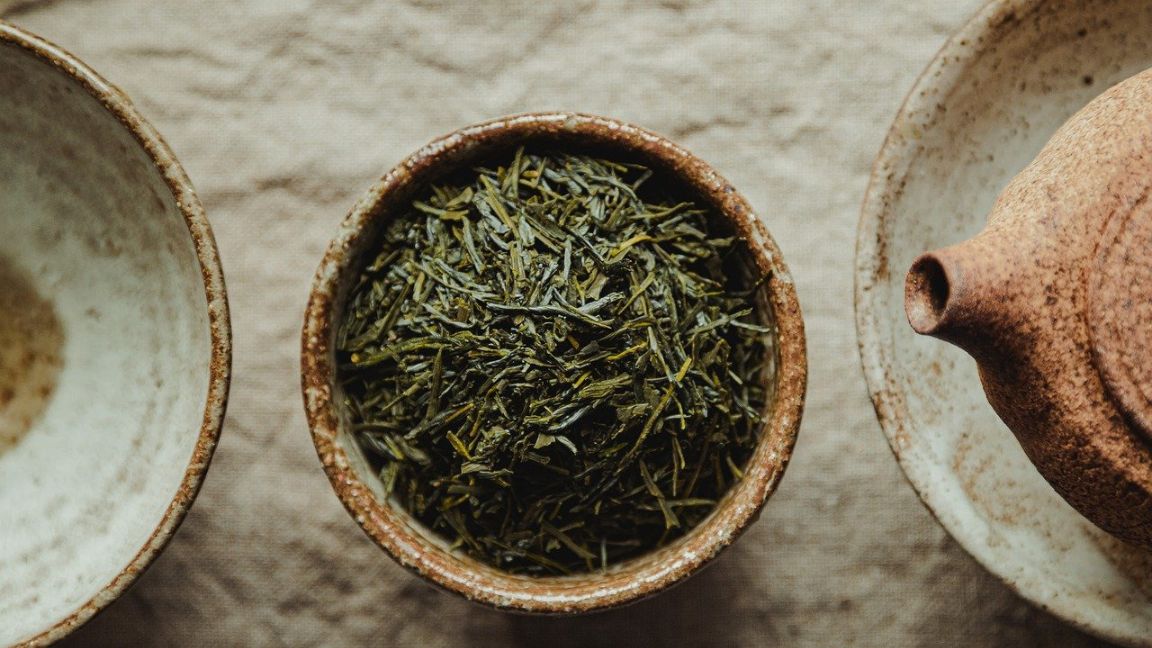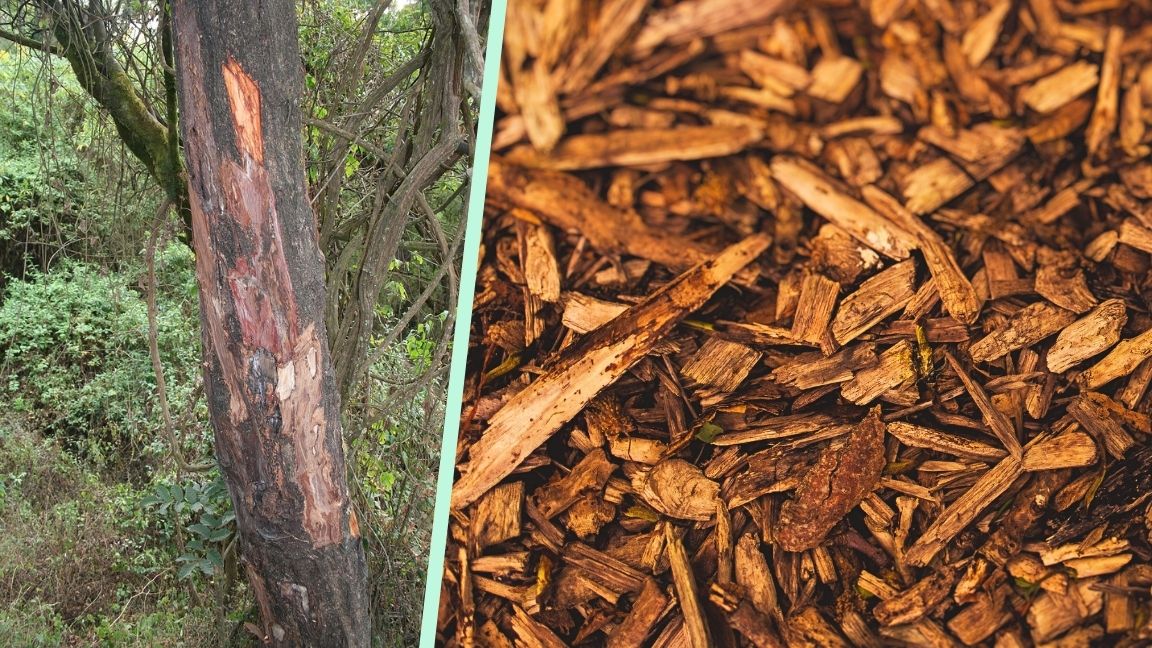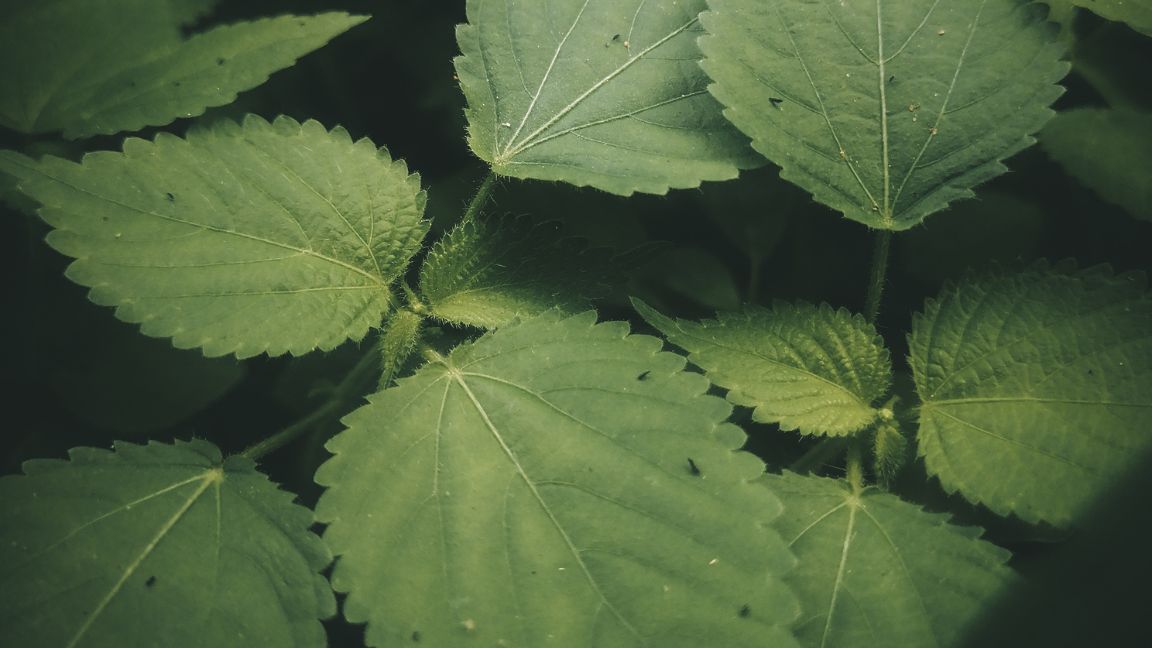Wholesome Wisdom Bites:
- Rye Grass Pollen’s Magic: Traversing its historical roots to its modern-day significance, uncover how Rye Grass Pollen harmonizes testosterone and champions prostate health.
- Science Speaks: Delving into clinical trials and research, dispel myths, and unearth Rye Grass Pollen’s potential in prostate cancer, inflammation, and hormonal balance.
- Beyond Prostate: Discover its broader health implications, from blood sugar stabilization, heart health, weight management, to a tranquil sleep.
- Navigating Choices: From dosages to interactions, compare Rye Grass Pollen with conventional treatments, ensuring you’re well-equipped for informed decisions.
Table of Contents
- Unraveling Nature’s Powerhouse: Rye Grass Pollen
- What is Rye Grass Pollen?
- Benefits of Rye Grass Pollen
- Scientific Studies and Evidence
- Side Effects of Rye Grass Pollen
- Psychological Impact of Prostate Issues and Rye Grass Pollen
- Inflammation, Cancer, Hormonal Imbalance, and Rye Grass Pollen
- Diabetes, Sugar Balance, Healthy Heart, Weight Loss & Sleep
- Rye Grass Pollen Impact Testosterone Levels
- Comparison with Other Prostate Health Treatments
- Dietary Incorporation of Rye Grass Pollen
- Dosage Recommendations
- Interactions with Other Supplements and Medications
- Tying the Threads Together
- Frequently Asked Questions
Unraveling Nature’s Powerhouse: Rye Grass Pollen
Prostate problems and testosterone imbalances have cast shadows over many men’s lives. Trust me, navigating the male body’s intricacies is a journey, often fraught with confusion.
But amid this, nature has slipped us a subtle gem: Rye Grass Pollen. This isn’t just another botanical buzzword.
Dive in as we unearth its potential in managing not just testosterone and prostate woes, but a myriad of other health intricacies too.
What is Rye Grass Pollen?
Botanical Description and Historical Uses
Rye Grass Pollen isn’t just some ordinary plant extract; it’s nature’s very own remedy tailored for men, especially those battling prostate issues. Now, let’s get to know it a bit better.
- Scientific Name: Secale cereale
- Other Known Names: Ryegrass, Annual Ryegrass
- Origin: Native to Asia Minor, Southern Europe, and North Africa.
- Production: Rye Grass Pollen is extracted from the male reproductive parts of the Rye Grass plant, usually during its peak bloom season.
Role of Rye Grass Pollen in Managing Testosterone
Rye Grass Pollen has been observed to have effects on testosterone levels and prostate health.
Studies suggest it can potentially inhibit the growth of prostate cells, offering a natural approach to managing related issues.
Once a remedy hidden in the annals of ancient medicine, Rye Grass Pollen has journeyed into contemporary times.
Its recognition in modern supplements marks its enduring reputation for promoting male health.
Benefits of Rye Grass Pollen
Potential to Reduce Symptoms of an Enlarged Prostate:
For many men, an enlarged prostate is a concern, and Rye Grass Pollen might be a solution. It has demonstrated potential to alleviate symptoms, fostering better urinary health and comfort.
Table of Pros and Cons Table of Rye Grass Pollen:
| Pros | Cons | Resources |
|---|---|---|
| Potential to reduce symptoms of an enlarged prostate | Research on its effectiveness is mixed | 1, 3, 4, 5, 6 |
| Anti-inflammatory properties | There is very little research on its long-term effectiveness, safety, or its ability to prevent complications of BPH | 2, 3, 4, 5, 6 |
| Impact on testosterone levels | It is not known if it works as well as prescription drugs such as finasteride (Proscar) or alpha-blockers | 1, 2, 3, 4, 5, 6 |
| Personal experiences from men who’ve used Rye Grass Pollen | More rigorous controlled studies are needed to fully assess its efficacy | 1, 2, 3, 4, 5, 6 |
Rye Grass Pollen isn’t just about the prostate. Its anti-inflammatory properties can pave the way for improved overall health, potentially benefiting areas from joints to digestion.
Balancing hormones is vital, and Rye Grass Pollen may lend a hand. By potentially modulating testosterone levels, it can contribute to hormonal balance in the male body.
Potent Supplements to Augment Rye Grass Pollen’s Efficacy Together
Saw Palmetto: Often teamed up with Rye Grass Pollen, this herb primarily addresses BPH symptoms and enhances urinary tract function. When used in synergy with Rye Grass Pollen, their combined effects can be significant.
Recognized for its anti-inflammatory properties, Stinging Nettle, is an excellent partner to Rye Grass Pollen, especially in reducing prostate size. Beta-sitosterol: Extracted from various plants, it boosts urinary flow and diminishes residual urinary volume. Paired with Rye Grass Pollen, the duo can be a force against BPH.
Pygeum: Derived from the bark of the African plum tree, it complements Rye Grass Pollen’s actions by alleviating nocturnal urination. Zinc: Essential for prostate health, its inclusion with Rye Grass Pollen ensures the gland remains nourished and functional.
Scientific Studies and Evidence
Bioactive or Phytochemical Components
The potency of Rye Grass Pollen can be traced to its bioactive compounds. These phytochemicals are believed to impact testosterone production, urinary function, and more.
Table of Rye Grass Pollen Bioactive Powerhouse Components:
| Bioactive Components | Description and Potential Benefits | Sources |
|---|---|---|
| Beta-sitosterol | Enhances urine flow and reduces the amount of urine left in the bladder, making it essential for prostate health | 1, 3, 4, 6 |
| Amino acids | Building blocks of proteins that play a pivotal role in overall health, aiding in muscle growth, repair, and even supporting a well-functioning prostate | 2 |
| Phytosterols | Compounds that resemble cholesterol and are found in plants. Their presence might help in blocking the uptake of cholesterol in the intestines, making them essential for heart health | 5, 7 |
| Polysaccharides | Long chains of carbohydrate molecules, vital for energy. They also play a role in cellular communication, which is crucial for hormone balance | 8 |
Research consistently shows promise. Multiple trials have linked Rye Grass Pollen with a reduction in prostate-related symptoms, underpinning its credibility in the scientific community.
There’s a misconception that all natural remedies are void of side effects. While Rye Grass Pollen is generally safe, it’s essential to approach its usage informed and with caution.
The field is evolving, with some studies hinting at Rye Grass Pollen’s potential to lower testosterone. However, critics argue the need for larger, long-term studies.
Side Effects of Rye Grass Pollen
Potential Side Effects Listed
Like all remedies, Rye Grass Pollen has its side effects. Some users report mild stomach discomfort, while others mention allergic reactions. Knowing these is vital to make informed decisions.
I always advocate for safety.
If considering Rye Grass Pollen, it’s best to discuss it with a doctor or specialist, ensuring it aligns with individual health needs.
Overview of Side Effects of Rye Grass Pollen for Different Age Groups:
| Group | Potential Side Effects | Sources |
|---|---|---|
| Young Men | Mild stomach discomfort, allergic reactions, gluten sensitivity | 1, 3, 4 |
| Men with Prostate Problems | Severity of side effects can vary depending on age, genetics, and severity of prostate condition | 1, 2, 3, 5 |
| The Elderly | Severity of side effects can vary depending on age, genetics, and severity of prostate condition | 1, 2, 3, 5 |
Age, Genetics, Severity of Prostate Condition
The severity of side effects can vary. A younger person might respond differently than someone older, and genetics can play a role. Always be attuned to personal factors.
Beyond the supplement itself, factors like exercise, diet, and stress levels can influence how one reacts to Rye Grass Pollen. Holistic wellness is paramount.
Psychological Impact of Prostate Issues and Rye Grass Pollen
Effects of Testosterone-Related Prostate Problems
Often, when testosterone levels surge or dip, it can significantly impact a man’s emotional well-being.
Mood swings, depression, and anxiety can become close companions, influencing one’s overall life quality. The emotional turmoil can sometimes overshadow the physical symptoms, casting shadows on personal relationships and professional performance.

The Unseen Scars of Hormone Imbalances
An imbalance in testosterone can wreak havoc not only on the body but also on the psyche. It’s like an internal storm that others can’t see, but you certainly feel its effects daily.
These psychological imprints are harder to diagnose and treat but are as crucial as treating physical symptoms.
Research Supporting and Opposing Rye Grass Pollen
Some studies have shown that Rye Grass Pollen can alleviate some symptoms associated with prostate issues. On the other hand, a few reports question its effectiveness, emphasizing the need for more conclusive research.
As with many supplements, individual responses can vary, making it essential to consult a health professional.
While numerous men swear by the benefits of Rye Grass Pollen, science is yet to give it a unanimous nod. The divergence in research outcomes calls for a balanced view on its utility and effectiveness.
Inflammation, Cancer, Hormonal Imbalance, and Rye Grass Pollen
Potential Anti-Inflammatory Properties of Rye Grass Pollen
Rye Grass Pollen is believed by many to have anti-inflammatory effects, potentially helping to reduce prostate inflammation. This characteristic can be a relief for many, considering inflammation is often a precursor to more significant health issues.
But, as always, more research is needed to solidify these claims.
In the vast realm of nature’s offerings, Rye Grass Pollen emerges as a potential healer. However, while it holds promise, it’s not a one-size-fits-all solution, emphasizing the importance of individualized medical advice.
Turmeric: A celebrated anti-inflammatory powerhouse, it contains curcumin—a compound that fights inflammation at a molecular level. Omega-3 Fatty Acids, which is derived from fish oils— are vital in reducing inflammatory responses throughout the body. Green Tea Extract: Rich in polyphenols, especially EGCG, it helps reduce inflammation—and even exhibits anti-cancer properties.
Rye Grass Pollen may Influence Prostate Cancer Risk or Progression
There’s preliminary evidence suggesting Rye Grass Pollen might slow down prostate cancer’s progression. The mechanisms behind this aren’t crystal clear, but the mere possibility is a glimmer of hope for those affected by this condition.
The journey in understanding Rye Grass Pollen’s influence on prostate cancer is still in its early stages. Yet, the optimism surrounding its potential benefits is hard to ignore, bringing solace to many.
Effects on Hormonal Balance
Rye Grass Pollen might play a role in modulating testosterone levels, which in turn, can influence prostate health. The interplay between this natural supplement and our body’s hormones is intricate and fascinating, warranting further exploration.
Our body’s hormonal balance is a finicky thing, with many factors tipping the scale. Introducing Rye Grass Pollen into the mix can offer a balancing act, though one should proceed with caution and knowledge.
Diabetes, Sugar Balance, Healthy Heart, Weight Loss & Sleep
Beyond the Prostate
Emerging research hints at Rye Grass Pollen’s potential in aiding blood sugar regulation. Though not a direct remedy for diabetes, its adjunctive role can’t be ignored by those looking for natural ways to manage their condition.
While most people associate Rye Grass Pollen with prostate health, its potential benefits in blood sugar regulation illustrate the diverse ways nature can surprise us.
Rye Grass Pollen may Influence Cardiovascular Health
Heart health is crucial, and there’s chatter about Rye Grass Pollen’s potential positive effects on cardiovascular systems. Its role in inflammation reduction might be a contributing factor, but a deeper dive into research is essential.
The heart is our life’s drumbeat, and anything that promises to keep it in rhythm piques interest. Rye Grass Pollen might just be one of those things, but as always, the heart of the matter lies in the details.
Effect on Sleep and Weight Management
Some anecdotal evidence suggests Rye Grass Pollen may aid in sleep regulation, potentially even influencing weight management. But as the nights go by, more concrete studies are needed to validate these claims.
In our relentless quest for better sleep and a healthier weight, Rye Grass Pollen emerges as a potential ally. However, it’s essential to tread with eyes wide open and ears tuned to science’s evolving song.
Digging Deeper for Prostate Wellness
Cinnamon: An ancient spice, it’s shown promise in balancing blood sugar levels and can be an excellent accompaniment to Rye Grass Pollen. Berberine: Extracted from various plants, it’s been traditionally used in Chinese medicine and modern studies back its role in glucose metabolism.
Alpha-lipoic acid: An antioxidant that aids in insulin sensitivity and complements Rye Grass Pollen’s diabetes-fighting attributes. Chromium: Essential for lipid and carbohydrate metabolism, it ensures sugars are appropriately utilized in the body. Bitter Melon: Its compounds resemble insulin and can aid in sugar modulation.
Magnesium: Deeply intertwined with sleep regulation, it promotes relaxation and works well with Rye Grass Pollen to enhance sleep quality. Valerian Root: Known for its sedative effects, it aids in deepening sleep and reducing the time to fall asleep. L-theanine: An amino acid found in tea leaves, it promotes relaxation without drowsiness and complements Rye Grass Pollen’s sleep-enhancing abilities.
Green Tea Extract: Its thermogenic properties aid in fat burning, making it a great partner with Rye Grass Pollen for weight loss. Garcinia Cambogia: Rich in hydroxycitric acid, it restricts fat production and reduces appetite. CLA (Conjugated Linoleic Acid): Derived from safflower oil, it aids in body fat reduction.
Rye Grass Pollen Impact Testosterone Levels
Understanding the Biological Process
At the cellular level, Rye Grass Pollen might interact with enzymes responsible for testosterone conversion. This interaction could lead to altered testosterone levels, impacting various aspects of male health, particularly concerning the prostate.
Testosterone is a double-edged sword. While it drives many masculine traits, imbalances can lead to health challenges.
The potential of Rye Grass Pollen to modulate its levels presents a puzzle that many are eager to solve.
Studies that Observed Changes in Testosterone Levels
Various studies have explored the relationship between Rye Grass Pollen and testosterone.
The results are a mixed bag, with some showing positive modulation and others indicating no significant change. This variance underscores the importance of continued research.
Though the landscape of research around Rye Grass Pollen and testosterone is vast, the empirical data is the ultimate truth-teller.
Sifting through the numbers and findings is essential for anyone considering it as a therapeutic option.
Creating a Synergistic Effect on Testosterone Balance
Integrating Rye Grass Pollen with other natural therapies and lifestyle changes might create a harmonious effect on testosterone levels.
This holistic approach, while promising, should be undertaken with informed guidance and understanding.
When it comes to managing testosterone, focusing solely on individual interventions might not yield the desired results.
Embracing a holistic approach, with Rye Grass Pollen as a potential component, could pave the way to better health outcomes.
Fenugreek: This ancient herb is renowned for its testosterone-balancing attributes and is a brilliant addition to the Rye Grass Pollen regime. Tribulus Terrestris: Often linked with male health, it aids in testosterone production. Ashwagandha: Not just an adaptogen but a friend to testosterone levels, it ensures hormonal balance.
Tongkat Ali: Native to Southeast Asia, it’s been traditionally used for its testosterone-enhancing benefits. Maca Root: Originating from the Andes, it boosts libido and testosterone, making it an excellent partner to Rye Grass Pollen.
Comparison with Other Prostate Health Treatments
Navigating the world of prostate health can be overwhelming, given the vast number of treatments and supplements available. Rye Grass Pollen stands out due to its natural origin, compared to many conventional medications which often come with a host of side effects.
Natural doesn’t always mean ineffective. The beauty of turning to a natural remedy like Rye Grass Pollen lies in its fewer side effects and holistic approach.
While many conventional treatments target specific symptoms, natural remedies tend to work harmoniously with the body, promoting overall health and balance.
Dietary Incorporation of Rye Grass Pollen
Rye Grass Pollen is sourced directly from rye grass, ensuring its purity. It’s often available in supplement forms like tablets, capsules, or powders, making it convenient for users to incorporate it into their daily diets.
While Rye Grass Pollen is potent on its own, it can be paired with other herbs like saw palmetto or nettle root to amplify its benefits.
When combined with a balanced diet and other supplements, it can contribute greatly to improved prostate health and overall well-being.
While Rye Grass Pollen has shown promising results for prostate health, it’s important to remember that individual responses may vary.
It stands tall among many natural supplements, but always consult with a healthcare professional to determine the best treatment for your unique situation.
Other Natural Supplements that Marry Well with Rye Grass
Goji Berries: A potent antioxidant source, they mirror Rye Grass Pollen’s benefits in boosting overall health. Pumpkin Seeds: Rich in zinc and phytosterols, they resonate with Rye Grass Pollen’s prostate health promotion.
Flaxseeds: Their lignans balance hormones, aligning closely with the effects of Rye Grass Pollen. Chia Seeds: Beyond being nutrient-dense, they offer a similar health spectrum, complementing Rye Grass Pollen. Bee Pollen: While different from Rye Grass Pollen, it’s an energy booster and offers a multitude of vitamins and minerals.
Dosage Recommendations
Proposing Dosages for Prostate Health and Testosterone Regulation:
| Dosage | Benefits | Resources | Supplement Endorsement |
|---|---|---|---|
| Low dose: 126 mg/day | May reduce prostate pain caused by an enlarged prostate or prostate swelling mildly | 1, 2 | Fluxactive Complete –Learn more or -Visit the official website |
| Moderate dose: 500 mg/day | Can improve symptoms of an enlarged prostate and increase urine flow | 1, 2 | |
| High dose: 750 mg/day | May reduce the size of the prostate | 2 | Get Medical Advice |
For younger individuals, a lower dosage might suffice, while older adults might require a slightly higher amount. It’s always crucial to consider one’s age, body weight, and specific health conditions when determining the optimal dosage.
Interactions with Other Supplements and Medications
It’s imperative to be cautious when combining Rye Grass Pollen with other medications or supplements. While it’s generally considered safe, it’s always a good idea to discuss potential interactions with a healthcare professional.
Rye Grass Pollen is lauded for its benefits, but like any supplement, it’s vital to use it sustainably.
Regular breaks might be beneficial to ensure the body doesn’t become too reliant on it, ensuring effectiveness over the long haul.
Consistent monitoring is key. Track any changes in your body or mood, and be ready to adjust your dosage or take breaks as needed.
This proactive approach will ensure you reap the benefits of Rye Grass Pollen without any unwanted surprises.
Tying the Threads Together
I can’t stress enough the potential of Rye Grass Pollen in managing prostate health and testosterone levels. While the body of evidence grows, I’ll remain vigilant, updating you with fresh insights from emerging research.
But always remember, while Rye Grass Pollen may be a vital tool, it’s essential to consult with your doctor and embrace a holistic approach to well-being.
Your health journey is unique, and I’m here to guide and support you every step of the way.
Frequently Asked Questions
What benefits Rye Grass Pollen?
The benefits of Rye Grass Pollen encompass its potential in managing prostate health, testosterone levels, weight loss, balancing blood sugar, addressing hormonal imbalance, and even promoting better sleep.
Is daily Rye Grass Pollen intake safe?
Consistently taking Rye Grass Pollen is generally considered safe for many, though I strongly suggest consulting with a healthcare professional for individualized advice.
How does Rye Grass Pollen influence testosterone?
Rye Grass Pollen has shown promising results in harmonizing testosterone levels, particularly benefiting those with prostate concerns. Its intricate dance with hormones is what sets it apart.
Can Rye Grass Pollen help with diabetes?
Beyond its prostate benefits, Rye Grass Pollen may indeed play a role in blood sugar balance, which can be beneficial for diabetics. Its potential properties have a broader health implication than most realize.
Does Rye Grass Pollen aid weight loss?
There’s emerging evidence suggesting Rye Grass Pollen’s positive impact on weight management, though it’s crucial to combine it with a balanced diet and exercise for the best results.
What are the side effects of Rye Grass Pollen?
While many experience no side effects, some individuals might face minor issues. Age, genetics, and the severity of prostate conditions can influence these effects. It’s paramount to be informed and vigilant.
Which is superior: Rye Grass Pollen or common medications?
Rye Grass Pollen offers a natural approach, and many find it effective. However, comparing it to common medications, both have their merits and demerits. I’d always urge a combination of nature with science after consulting a doctor.
So, are you ready to take control of your prostate health today?
What’s your biggest health concern right now?

